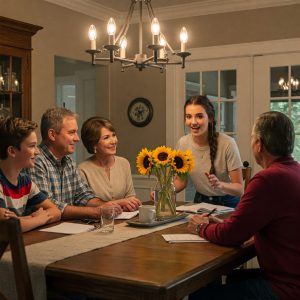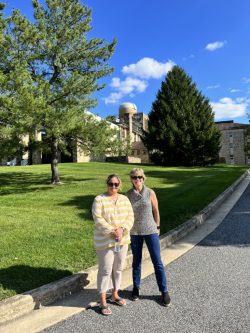Nearly twenty years ago, in my role as the first-ever Director of College Counseling at an independent San Francisco startup school, I was guiding the first graduating class through their college process. Our office hosted parents and the class for a February case study event during their junior year, where we had a panel of admissions officers from Stanford, Santa Clara University, Occidental College, and the University of San Francisco presenting, and where those admissions leaders then also led families through the exercise of reading fictitious admissions files and university profiles and making committee decisions on the admissions fate of each candidate. I’d helped put together many of these events in the past, and families always found them instructive and perspective-altering: it was a moment when parents and students alike really understood what it meant to have to make choices that were about institutional priorities and the number of beds on campus, rather than evaluating each individual applicant on any objective standard. During the panel discussion in particular, one additional message was replayed again and again: this is a time for parents to begin to step aside, and for students to make their own decisions. Many parents laughed nervously as admissions officers and my team gently encouraged them to let their kids take the wheel, but I noticed the mother of one of my students (originally from the Netherlands), getting up to leave in frustration. I knew I needed to follow up. What she shared with me a couple of days later stuck with me, and has guided me in important ways ever since.

In Holland, she explained, decisions like this were family decisions. They were dinner table, parent-led, deeply engaged discussions, and Dutch culture did not abide by the dynamics she felt we were flippantly and dismissively presenting to her. As we shared our intentions with one another, and affirmed our commitment to understanding one another, I felt enormous gratitude for her trust in sharing this with me, and also recognized that I needed to deepen the way I thought about parent communication and support in my work; as much as I committed to understanding my students as deeply as possible, I needed to commit just as much to supporting families individually in ways that would allow for this important transition to be a healthy one. What we were saying wasn’t wrong, per se; the message just wasn’t delivered in a way that allowed her to be in a healthy and supported place at that dinner table. That I still remember this conversation so vividly after two decades is a testament to its power in guiding work with families since.
At McMillan, our work with students begins with a whole-family startup meeting. From the very outset, parents and students are encouraged to share hopes, fears, wishes, and concerns about the process in a shared space, and that frames the tenor of everything that follows. From there, college consulting centers frequent and highly structured consultant-student engagement, but also calls for sharing feedback with parents after each meeting as well, to keep parents informed, and to allow for conversations at home to be about far more than “what’s happening with McMillan.” School consulting is appropriately more of a shared family experience throughout, helping students in early steps toward greater independence, but also meeting them where they are developmentally as they take on a highly structured and detail-oriented process. All of this structure is delivered in, and supported by, our Owl’s Nest™ portal, developed to support students and families through every detail of a complex process in ways that reinforce our broader mission of student-centered process and outcomes. This structure and highly personalized guidance form the heart of our WISE Method™.
Our best practices call for multiple parent conferences each school year, and also invite regular engagement at every juncture through progress reports, and through regular all-family newsletters and timely planning communications. Beyond the structure, though, we are driven by the instincts, training, and student-centered hearts that come from years as educators and as counselors, not just as experts in admissions. Don was a teacher, department chair, coach, dorm parent, and curriculum director before he became a CEO; Sarah is a developmental psychologist and is a nationally recognized leader in child development as well as being a former teacher, coach, dorm parent, department chair, academic dean, and head of upper school. They’ve hired a team in their own image, and we are deeply committed to supporting student growth and fulfillment in their process as much as we are to any admissions outcome. We are competitive people and love to see our students succeed in this process, but we also fully understand that their growth and fulfillment are far more enduring, and more critical to long term health, than the brand associated with their education. That commitment is why we are here, rather than choosing to be sole practitioners or working anywhere else.
Celebrating 70 years of student success, we are educators first. I’d put our expertise and knowledge of school, college, and therapeutic admissions next to that of anyone in the field, but as educators we are also experts on kids and the dynamics that best support their growth, and on the ways in which supporting and educating families in the process can buttress and amplify that growth. We understand that the heart of great educational consulting lies in sharing our 300+ years of team expertise, professional development, and wisdom in trusting relationships, built through intentional structures, delivered with educators’ hearts.



